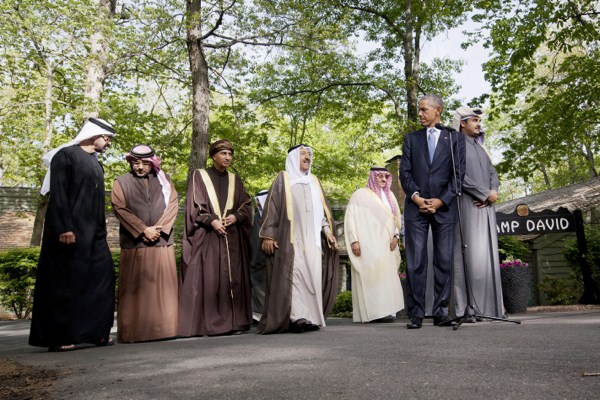In Japanese director Akira Kurosawa’s iconic 1950 film, “Rashomon,” four people witness a crime outside the gates of Kyoto. When called on to testify in court, each has a distinctly different version of the events, and even different ideas of who the guilty party is. The Rashomon effect, as this phenomenon is often called, was in evidence this month, when reports leading up to and following the U.S.-Gulf Cooperation Council (GCC) summit earlier this month produced wildly divergent assessments, from total failure to “better than expected.”
There’s a danger of imbuing too much importance to the summit itself, which is only one small step in a very long saga, one that may soon be superseded by other regional dramas and transactions. But parsing the event is useful in part because it captures the subtle and often contradictory ways the United States and the GCC find themselves entwined in each other’s national security policies. In addition, studying President Barack Obama’s message to the Arab leaders, as well as their reactions, can illuminate some of the dynamics likely to prevail at least until the end of the Obama presidency.
The summit, which began in Washington on May 13 and moved to the Camp David presidential retreat the following day, was an American initiative to engage the six countries of the GCC after the successful completion of a draft plan on Iran’s nuclear activities. That draft could lead to a formal agreement between Tehran and the international community by mid-year. It was no surprise that the Gulf leaders were not convinced that the proposed agreement would resolve their deep, virtually existential worries about Iran’s strategic intentions; Washington and the other parties to the nuclear negotiations were well aware that building confidence in Israel and Arab capitals was an essential next step.

